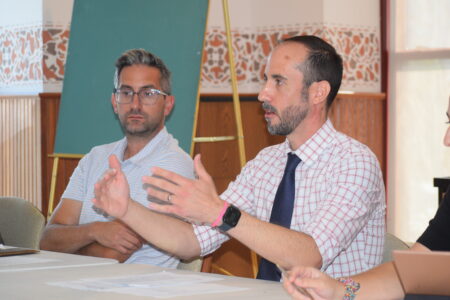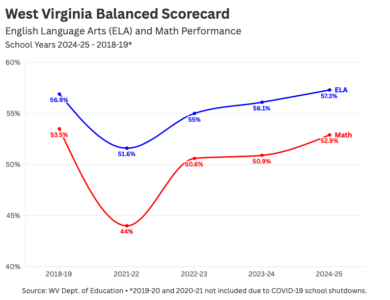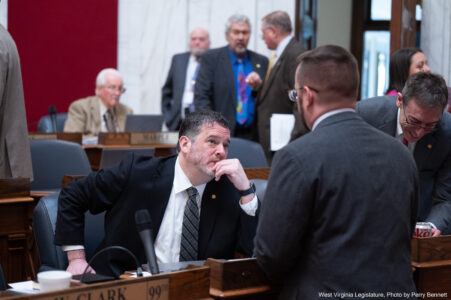West Virginia Attorney General Files Brief Defending State’s Transgender Athlete Ban

photo by: Steven Allen Adams
The U.S. Supreme Court, seen here under renovation in April, could soon be where both sides in the fight over West Virginia’s Save Women’s Sports Act could be making arguments.
CHARLESTON — West Virginia Attorney General J.B. McCuskey laid out his argument to the U.S. Supreme Court defending the state’s law meant to keep transgender girls and women from competing with biological girls and women in public school and college athletics.
The Attorney General’s Office announced late Friday that it had filed its opening brief in West Virginia v. BPJ, which the U.S. Supreme Court agreed to add to its docket in July. The Supreme Court’s next term begins Monday, Sept. 29, and continues through June 25, 2026.
The Supreme Court agreed to review a decision by the U.S. Fourth Circuit Court of Appeals, which blocked enforcement of House Bill 3293, relating to single-sex participation in interscholastic athletic events.
“Female athletes in West Virginia are finally having their voices heard at the Supreme Court,” McCuskey said in a statement Friday. “This is a monumental day not only in West Virginia, but across the country. The people of West Virginia know that it’s unfair to let biological male athletes compete against females; that’s why we passed this commonsense law preserving women’s sports.”
HB 3293, passed by the West Virginia Legislature in 2021, requires student-athletes in middle school, high school or college to participate in sports that match the student’s sex assigned at the time of their birth. The law applies to sports regulated by the NCAA and other college interscholastic organizations. The law is now called the Save Women’s Sports Act.
Becky Pepper-Jackson, a Harrison County high school cross country and track athlete who has identified as a girl since third grade and takes puberty-blocking medication, filed a lawsuit against HB 3293 in May 2021 shortly after the law went into effect. After a lower court allowed the law to be enforced, the Fourth Circuit overruled that decision, preventing the law from being enforced while the case was pending.
In the brief, the Attorney General’s Office argues that the Save Women’s Sports Act aligns with federal Title IX and the Equal Protection Clause of the Fourteenth Amendment, arguing that biological sex, not gender identity, is a valid and necessary distinction in athletic competition to ensure fairness and equal opportunity for female athletes.
“More than 50 years ago, Title IX promised a new beginning for women’s sports – one built on equal opportunity,” according to the brief. “For half a century, that promise was kept…That promise is now in danger. Male athletes identifying as female are increasingly competing in women’s sports, erasing the opportunities Title IX ensured.”
The brief details the physiological advantages of biological males, the alleged negative impacts of male-identifying-as-female athletes on women’s sports, and challenges the Fourth Circuit’s ruling, which favored Pepper-Jackson and deemed the Save Women’s Sports Act as discriminatory.
“In short, the Fourth Circuit reasoned that both the Constitution and Title IX compelled West Virginia to treat sex and gender identity as synonymous when it comes to sports,” according to the brief. “That approach erases the line between men’s and women’s athletics. Sex affects athletic performance; gender identity does not. If the court below were right, then Title IX’s role in preserving girls’ sports opportunities would end.
“West Virginia’s law also satisfies the Equal Protection Clause,” the brief continued. “The Constitution does not require States to dispense with objective, biological sex distinctions. Nor does it require States to ignore inherent differences between men and women. The ordinary line-drawing found in the Act is not invidious discrimination subject to higher scrutiny.”
The Harrison County Board of Education, the West Virginia Board of Education and State Superintendent’s office are also parties to the lawsuit. The Alliance Defending Freedom, a conservative legal non-profit, is listed as a co-counsel representing Lainey Armistead, a former women’s soccer athlete at West Virginia State University who supports the Save Women’s Sports Act.
Pepper-Jackson is represented by the ACLU-WV, Lambda Legal, and Cooley LLP.





